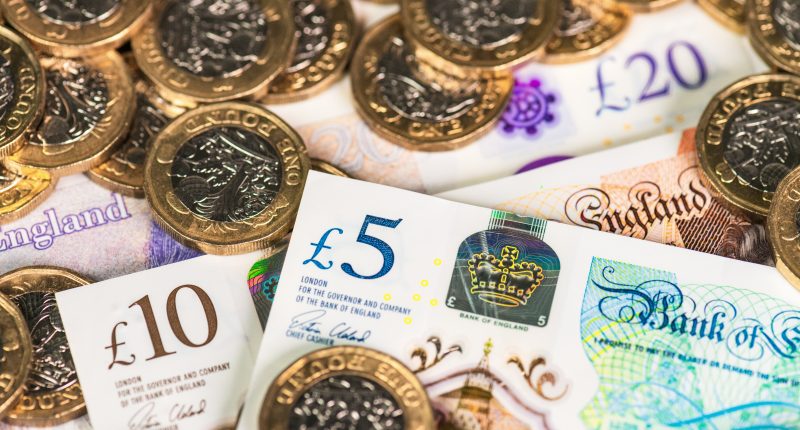SAVERS are warned that time is nearly up to secure a 5% tax-free savings boost.
It comes as only four providers now offer fixed bond cash ISAs that pay 5% or more in interest.
Sarah Coles, head of personal finance at Hargreaves Lansdown, has warned that the days of the top-paying 5% cash ISA are numbered.
She said: “With the market now expecting the Bank of England to cut the base rate as early as May, lower interest rates are being priced into the ISA market.
“As each bank pulls their rates, more will flow into the most competitive deal on the market, which raises the risk of them filling their coffers and withdrawing these deals too.
“It means this could be your last chance to get a 5% ISA for a while, so it’s worth acting now if you can.”
Read more in money
However, while we may not get rates back above 5%, there will still be the kind of deals available that “we’d have given our right arm for in previous years”, according to Sarah.
ISAs dropped off the radar while interest rates were lower, especially after the introduction of the personal savings allowance, which meant the first £1,000 of interest earned in a regular savings account is tax-free for basic rate taxpayers.
This allowance halves to £500 for those on the higher tax rate.
However, two recent changes have pushed up the popularity of ISAs once again.
Most read in Money
Higher interest rates fueled by 14 consecutive base rate rises mean that those with larger savings balances now risk paying tax on their interest for the first time in a while.
Meanwhile, frozen income tax thresholds are seeing more people fall into the high rate tax band, so their personal savings allowance halves overnight.
In the current tax year, 5.6million will end up paying the higher tax rate – equating to a 41% increase in three years, making tax a much bigger deal for all of them.
Below, we’ve explained how ISAs work and how to find the best deals.
What are ISAs?
ISAs (Individual Savings Accounts) are savings accounts where you never pay tax on any interest earned.
Each year, everyone over the age of 16 gets an ISA allowance of £20,000.
This means that they can earn interest on their savings in a bank, building society or another financial provider without paying tax.
But there are different types, so it’s worth looking around to find the one that best suits your needs.
The most common types are cash ISAs and stocks and shares ISAs, where your money is invested in the stock market.
Cash ISAs can be opened by anyone 16 or over, and you can deposit a maximum of £20,000 into one per tax year.
There are different types, including easy-access cash ISAs, fixed-rate ISAs, and Help to Buy ISAs.
Easy-access ISAs let you add money that can be taken out at any time without a charge.
Fixed-rate ISAs offer higher interest rates than easy-access ISAs, but you will usually have to pay a fee for withdrawing money before the end of the term.
Those saving into a conventional savings account are still protected from tax to a certain level too.
The personal savings allowance lets you earn a chunk of interest before paying tax.
Basic rate taxpayers get £1,000 and higher rate taxpayers get £500.
But if you expect to make more than £1,000 a year in interest you’d be better off by saving your cash in an ISA.
Where can I put my savings?
Those looking to lock money into fixed cash ISAs will now find average rates have risen above 5%.
Only four providers now offer rates at this level.
Virgin Money’s one-year cash ISA pays 5.25% in interest, Shawbrook Bank pays 5.01%, and Post Office Money and Punjab National Bank’s one-year cash ISAs pay 5% in interest.
The only downside to fixed bond accounts is that you’re forced to lock away your cash for a defined period.
Average easy access account rates and rates on accounts where some notice needs to be given have also peaked.
Easy access accounts tend to allow you unlimited cash withdrawals.
The best account available now is currently Metro Bank’s instant access cash ISA which pays 5.11% interest.
Meanwhile, notice accounts form a halfway house between easy-access and fixed-rate bonds, and their top rates usually sit between the two.
Teachers Building Society currently offers the best rate on a 180-day notice savings account, paying 5.25%.
It’s always worth weighing up to see what’s best for you.
How can I find the best savings rates?
With your current rates in mind, don’t waste time looking at individual banking sites to compare rates – it’ll take you an eternity.
Visit comparison websites such as MoneyFactsCompare, Go Compare and MoneySupermarket.
These will help save you time and show you the best rates available.
These sites let you tailor your searches to an account type that suits you.
There are five main types of savings accounts, and understanding the differences can help you narrow down the options.
Easy-access savings accounts usually allow unlimited cash withdrawals.
However, this perk means they tend to come with lower interest returns.
Regular savings accounts generate decent returns but only on the basis that you pay in a set amount each month.
Notice accounts offer slightly higher rates than easy-access accounts, but you’ll need to give advance notice to your bank (up to 95 days) before you can make a withdrawal, or you’ll forfeit the interest.
Fixed-rate bonds offer some of the highest interest rates.
Read more on The Sun
However, if interest rates increase during your term, you can’t move your money and switch to a better account.
Individual savings accounts (ISAs) pay high interest and come with great tax benefits for big savers. However, this can come at the cost of high withdrawal fees.










